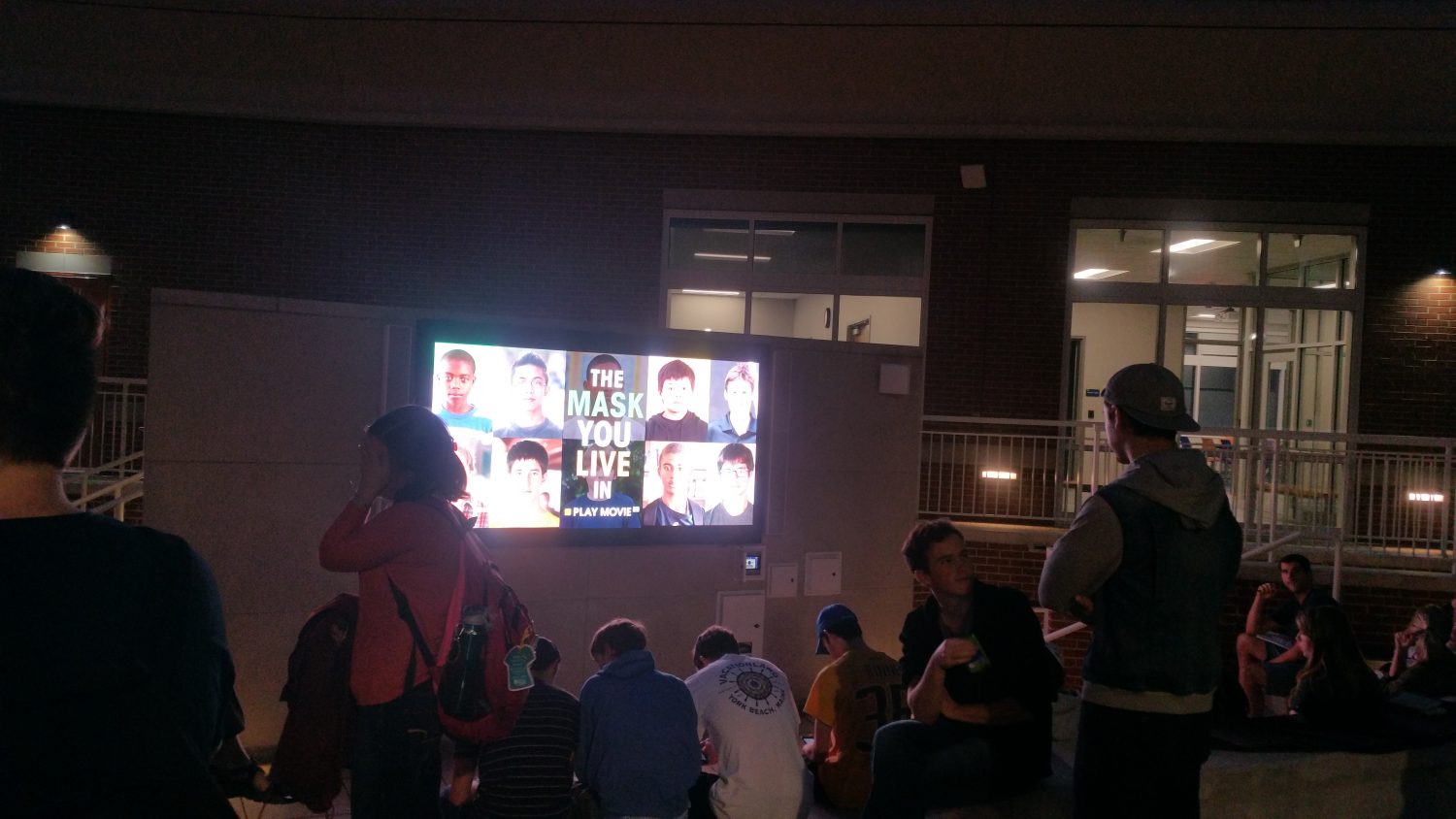Have you ever heard the phrase “toxic masculinity?” What about just “masculinities?” These terms were unpacked on Oct. 3 at the Spring Hall Amphitheater over the course of a 90-minute documentary screening of the film “The Mask You Live In” and a short period of conversation afterwards.
Of the many points made during the film, one of the most important is that since the tragedy of Sandy Hook, there has been a school shooting nearly every week.
Virtually all of the shooters have been male, the youngest just 11-years-old. In fact, the single most important factor is gender. Mental illness has been just one way to set aside the topic of gender.
Another link emphasized in the film was the average consumption of 20 hours a week of video games by most boys. About 99% of boys play video games, with devastating effects on users’ behavior, often making them more fearful of the world around them and more likely to exhibit violence.
Video game “heroes” are often unable to express themselves emotionally, something just as often modeled by video game users who seek to “escape into the game” under the temptation of “arousal addiction.” It was pointed out that the United States Army uses video games as a way of training troops prior to deployment.
With 68% of boys consuming porn weekly, and 21% of men consuming it daily, porn serves as many young adults primary form of sex education. Only 22 states require any form of sex education in their public school systems.
Consumed in excess in social isolation, the watching of porn helps facilitate what is initially a sex impulse into the normalization of brutality, increasing the acceptance of rape myths among porn users, and contributing to the rape or attempted rape of one in five women on college campuses.
Of course, as the documentary reveals, the forming of “toxic masculinity” starts far before a young man steps foot on a college campus. The notion that saying to a boy that he plays like a girl can actually destroy him, and his sense of self, reveals what we are teaching boys about girls. Considered objects, language often reveals this when “it” or “that” are used to describe a woman who is deemed sexually desirable in a culture of “toxic masculinity.”
By the age of 10, many boys have perfected the cultural expectation to “man up” and “be a man” and so therefore not to cry in public. Joe Ehrmann, a former NFL player, describes the phrase “be a man” as the most destructive phrases in our culture.
Long before the teenage years, there is a direct connection between having friends and being able to share feelings, with a correlation between friendships and mental health.
So long as empathy and the sharing of emotions are feminized, and therefore not valued by our culture, there may be little hope for transformation of the dehumanizing masculinities that operate to create and maintain a “man box” of what it means to be a man.
The fear of boys to be intimate in conversation is revealed in the common phrase “no homo” which operates as a trigger warning so that intimacy is not used against the speaker.
The irony is that masculinity involves a panoply of posturing practices while, in fact, boys want closeness. The documentary shared the statistic that 25% of boys binge drink in attempt to treat their own loneliness.
Often unwilling or unable to ask for help, boys between the ages of 15 and 19 have a suicide rate 5 times that of girls. Suicide is the third-leading cause of death of boys, with three dying daily.
University staff from both Campus Ministry and Residential Life, who were responsible for hosting the documentary screening and conversation that followed, invited students at the end of the film to discuss with a partner what hit them the most, what insight was gained and what each would do to contribute to change in light of the film.
Having received a grant to host other events that challenge and explore the notions of “toxic masculinity,” University staff plan on hosting other, similar events on campus in the near future.






